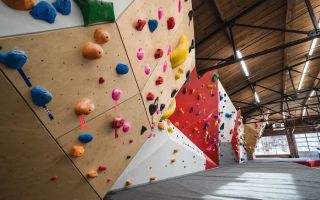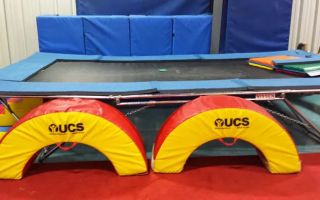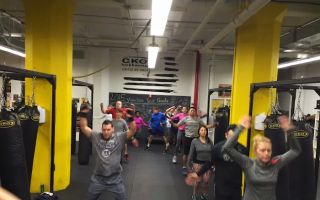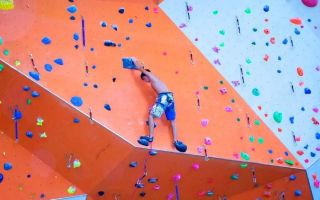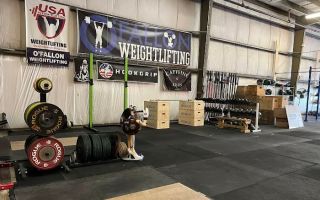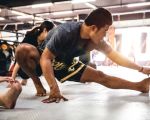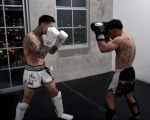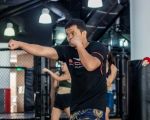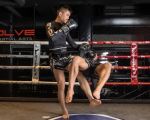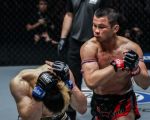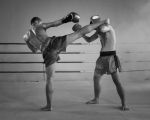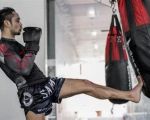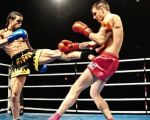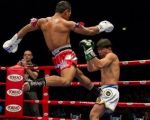Mastering Muay Thai Clinch Work: Essential Training Tips to Improve Your Skills
- 1. Understanding the Muay Thai Clinch
- 2. Key Clinching Techniques for Control
- 3. Training Drills to Improve Your Clinch
- 4. Real-Life Examples of Clinch Work in Action
- 5. Choosing the Right Gear for Muay Thai Clinch Training
1. Understanding the Muay Thai Clinch
The Muay Thai clinch is one of the most effective tools in a fighter's arsenal, allowing control over an opponent, setting up knee strikes, and neutralizing an opponent’s attacks. It involves controlling your opponent’s posture and movement through hand positioning, body mechanics, and leverage. For beginners, it’s crucial to understand the fundamentals of the clinch before diving into more advanced techniques.
At its core, the Muay Thai clinch is all about controlling your opponent’s head and arms. This enables you to land devastating knee strikes, set up throws, and maintain dominant control in a close-range fight. The clinch is also a defensive tool, allowing you to disrupt an opponent's rhythm and prevent them from executing their own attacks.
2. Key Clinching Techniques for Control
To truly excel in the clinch, you must master a few key techniques. These include:
- Head control: The most fundamental part of the clinch is controlling your opponent’s head. By pulling their head downward, you disrupt their balance and create openings for knee strikes.
- Grip variations: The type of grip you use—whether around the back of the neck, behind the head, or controlling the arms—can significantly affect the clinch’s effectiveness.
- Using the hips: Your hips play a crucial role in maintaining balance and generating power for knee strikes. Practice moving your hips fluidly to maintain control while remaining mobile.
These techniques are essential to developing strong clinch work in Muay Thai. Regular practice and drilling these moves will help you control your opponent more efficiently, keeping you in a dominant position throughout the fight.
3. Training Drills to Improve Your Clinch
To improve your clinch work, incorporate specific drills into your training routine. Here are a few drills to help you build muscle memory and refine your clinching skills:
- Partner clinch drills: Practice clinching with a training partner. Start with light pressure and work on establishing control over their head and body. Focus on maintaining balance while keeping your opponent in a vulnerable position.
- Knee strike repetitions: Once you’ve established the clinch, practice landing knees from different angles. Incorporate both straight and angled knee strikes to build power and accuracy.
- Clinching against resistance: Use resistance bands or training equipment to simulate the difficulty of clinching against a strong opponent. This will help build strength and stamina during your clinch work.
Incorporating these drills will increase your comfort in the clinch, allowing you to transition seamlessly between offensive and defensive positions.
4. Real-Life Examples of Clinch Work in Action
One of the best ways to understand the effectiveness of clinch work is through real-life examples. Take, for instance, the legendary Muay Thai fighter Saenchai. Known for his incredible clinch control, Saenchai frequently demonstrates how to dominate his opponents by establishing head control and landing powerful knee strikes. His ability to use the clinch in combination with his footwork and strategy is a perfect example of how this skill can be a game-changer in a fight.
Another example is the iconic fight between Muay Thai champions Buakaw Banchamek and Enrico Kehl. In their fight, Buakaw’s clinch work was key to his victory, as he used it to shut down Kehl’s attacks and land devastating knees that ultimately led to his triumph. Watching fights like these will give you a visual understanding of how crucial clinch work is for controlling the pace of a match.
5. Choosing the Right Gear for Muay Thai Clinch Training
To maximize your clinch training, it's essential to have the right gear. For clinch-specific training, a good pair of Muay Thai gloves, elbow and knee protection, and a durable mouthguard are all critical. These items will ensure that you’re fully protected during your training and can push yourself to the limit.
If you’re serious about improving your clinch game, consider investing in high-quality gear that is specifically designed for Muay Thai. Gear that offers mobility and protection will allow you to focus on mastering your techniques without worrying about injury.



